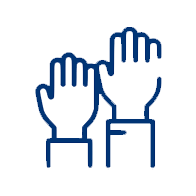Depression presents differently in different people and it is not always easy to know if someone is experiencing depression. Some common symptoms are:
- Feeling sad, ‘flat’ or down most of the time (for two weeks or more)
- Losing interest in activities you used to enjoy (for two weeks or more)
- Change in appetite, sudden weight loss or gain
- Having problems sleeping or sleeping all the time
- Feeling tired or lacking energy and motivation
- Feelings of worthlessness or guilt
- Feeling angry or lashing out
- Difficulty concentrating or being indecisive
- Increased alcohol and drug use
- Withdrawal from social interaction
- Thoughts of suicide
If you are feeling as though you or someone you know is struggling with depression, please contact your GP, and remember Lifeline is available 24/7 on 13 11 14.
Depression – Factsheet











